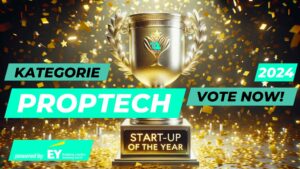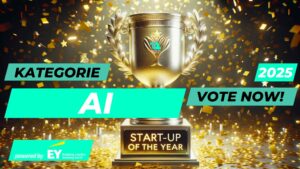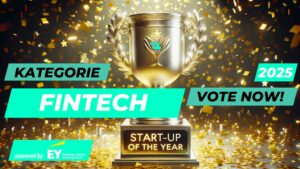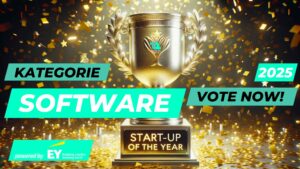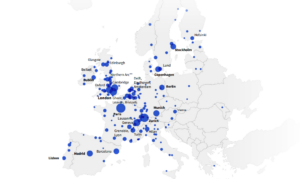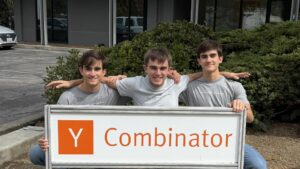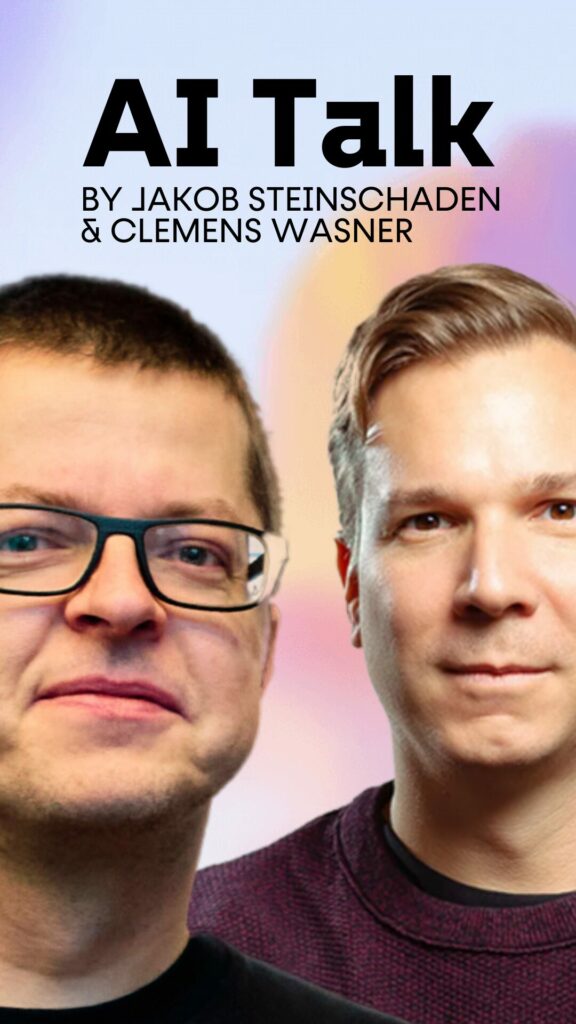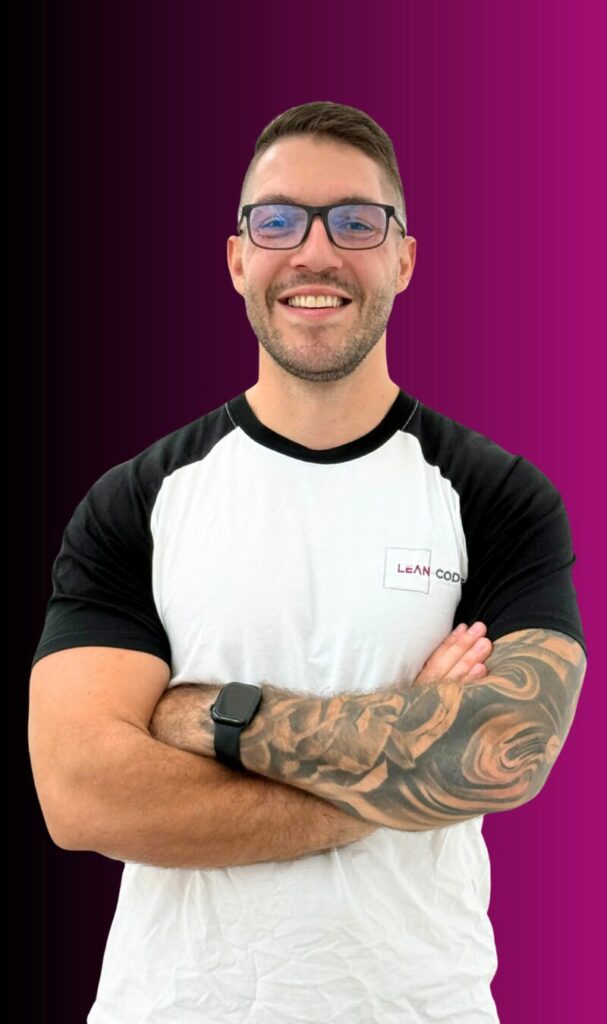Top VCs Talk AI: Working on The DeepSeek Moment for Europe
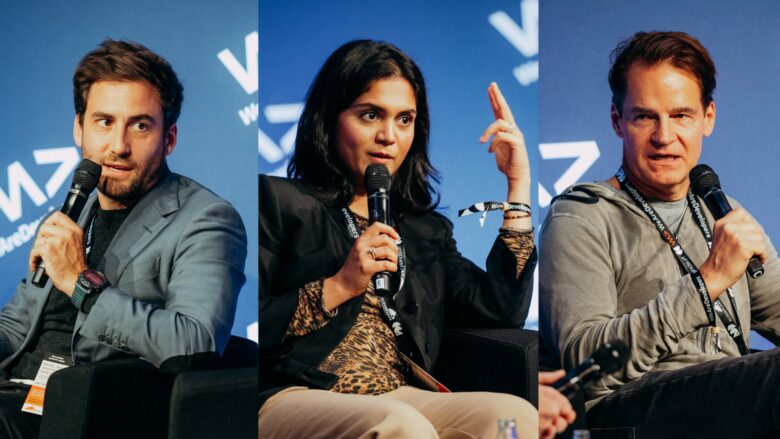
You don’t get the chance every day to speak with one of Europe’s top VCs about the big questions of the AI era—but when you can sit down with three of them, it’s an extraordinary day. That’s exactly what happened recently in Berlin at the WeAreDevelopers conference, where
- Romain Mombert, Growth Investor at Eurazeo (e.g. Mistral AI, BackMarket, Deezer)
- Christian Nagel, Partner at Earlybird VC (e.g. Aleph Alpha, N26, Isar Aerospace)
- Shikha Ahluwalia, VC at Balderton Capital (e.g. Revolut, GoCardless, Wayve)
took the time to talk with Trending Topics about the talent wars, AI-native startups, fundraising trends, and Europe’s opportunities in the age of AI.
How AI is changing VCs
Trending Topics: Today we’re exploring how AI is fundamentally changing the venture capital game. Let’s start with the big picture – how is AI transforming your industry?
Romain Mombert (Eurazeo): From a growth-stage investment perspective, our approach has always involved deeper data analysis than traditional venture capital, which makes our work more akin to traditional private equity. We rely heavily on data analysis and produce rich content for our investment decisions. AI is automating many traditional analyst tasks, similar to what’s happening in investment banking.
The market conversation around this is quite concerning, actually. We’re hearing that the analyst role is at risk across funds and banks. Some have already stopped recruiting analysts because AI can now produce satisfying investment analyses just by processing charts and data. I’d estimate 90% of production work can already be done by AI.
This creates a fundamental challenge: to develop successful senior investors, you need to train them as juniors first. But if we stop recruiting analysts, who becomes the next generation of senior people? The entire industry needs to rethink these foundational roles.
We’re embracing this change – automating everything possible and building our own tools. But I believe our future lies in focusing on relationships with founders and bringing human thinking and analysis on top of what AI produces. The raw analytical work will become a commodity.
Christian Nagel (Earlybird VC): The venture capital landscape is evolving rapidly, and that’s exciting. We developed our proprietary AI and data platform, EagleEye, over the past seven years to ensure we can scale what already works: our pattern recognition, our networks, our experience – with the speed and scope that today’s startups demand.
Through EagleEye, we’re able to identify promising founders early, long before they hit everyone’s radar. With already 10 million companies identified, it scans signals across markets, evaluates traction benchmarks, and highlights where our attention should go next. It’s a system that multiplies our reach without sacrificing judgment.
The goal isn’t just to be faster; it’s to be smarter and more intentional. That’s what we mean by Augmented VC: using AI to deepen conviction, sharpen focus, and support founders from a position of clarity.
Shikha Ahluwalia (Balderton Capital): Much of what you’ve described reflects a broader trend – AI easily replaces many junior-level tasks across domains, not just VC. This definitely provides an edge in research and understanding markets more quickly.
On the flip side, there’s obvious scarcity of AI talent, creating intense competition for the best engineers and retention challenges. This is particularly acute in both tech and VC sectors.
Funding & Cash Allocation
There’s a thesis emerging that founders now need less funding because AI requires fewer people. Are funding rounds getting smaller, and is cash being allocated differently?
Shikha: It’s difficult to generalize – this really depends on the specific business model. Some models remain working capital heavy regardless of AI. But there’s definitely a trend toward rationalizing operations and achieving more effectiveness with fewer people at an accelerated rate through AI.
Christian: We don’t see companies raising less money. It’s more about translating efficiency into faster scaling. Our AI investments now represent the majority of new backings; though I prefer not to say you „invest in AI“, but rather you support product implications. These companies have raised at least as much as previous rounds, often more. Good companies aren’t raising less.
Romain: The cost structure is shifting rather than shrinking. What used to go to people now goes to AI infrastructure. We’re not necessarily seeing lower burn rates – costs are moving to different line items, particularly LLMs and cloud services taking larger shares. It’s a shift in allocation, not reduction.
Foundation Layer vs. Application Layer
Given the US-Europe AI race, do you still invest in European foundation models, or do you prefer companies building apps on top of foundation models?
Christian: We do invest in foundation models in special cases, i.e. when they’re trained on data that can’t be generalized or very specialized applications where it makes sense.
The DeepSeek moment significantly changed our perspective. Since then, I’m confident about Europe’s chances, not just catching up but indeed building great companies. There could be a European DeepSeek emerging soon.
Romain: We’re investors in Mistral, and people talk about DeepSeek, but Mistral released a model as good as GPT3 in less than a year, having raised only a fraction of what Open AI and Anthropic had raised at the time – being already 100 times more efficient than them. DeepSeek was also 100 times more efficient, though we don’t know exactly how much resources they benefited from.
Where I differ from Christian is the sovereignty question. Europe has ceded internet to Google, cloud to Google, Amazon, and Microsoft. Maybe it’s time for Europeans to maintain their own infrastructure. Foundation models remain the most important infrastructure for any AI application created out there, driving a lot of spend. We might want to be more defensive and maintain our own capabilities.
Christian: Let me add some context. We’re investors in Aleph Alpha which had strong models and focused heavily on sovereignty, but realized that raising sufficient capital to remain competitive with Microsoft’s resources was challenging.
There was an early shift from foundation models to applications. This took time, yet has worked well. They’re now model-agnostic, working with Mistral and others. This pivot reflected impossibility of raising enough money to stay competitive at the foundation level.
Shikha: On our side, we invest in the most exceptional founders – that’s our focus. It’s true that some business models inherently require more funding than others, but that’s a secondary question. As the oldest and largest venture firm in Europe, we have always been positive about the strength of the region, and while we do believe there are big opportunities in the application layer, we also believe that niche foundational models such as Prior Labs are incredibly exciting.
Dependency on US infrastructure
Many European AI startups depend heavily on OpenAI, Anthropic, and other US providers. Is this dependency problematic, or will it be like cloud computing where European startups successfully build on US infrastructure?
Romain: It’s not necessarily problematic day-to-day, but look at public market comparisons – US and European stock markets were of similar sizes in early 2010s. Now the US market is 3 times larger, primarily due to tech and within tech, cloud hyperscalers / GAFA.
If we repeat this pattern with AI, we’re essentially transferring wealth and control to large US corporations. For a healthy, independent European AI ecosystem spanning infrastructure to applications, we need alternative infrastructure, including European cloud options. This requires policy support because competing against US corporate power is challenging privately.
Christian: Infrastructure is needed to some extent, and it is happening. France is doing much better than Germany currently – Macron’s AI initiative is successfully attracting corporate investment. We need more of this, and we have some German initiatives like Mr. Schwarz’s hub, but we need more efficient, European-financed infrastructure.
Shikha: Both perspectives are valid. The question isn’t necessarily whether we can outfund everyone on infrastructure – that’s uncertain. More important is ensuring fair, unbiased access to global foundation models. This is probably more likely with Americans, despite current government challenges, than with Chinese providers.
It’s really about Western world development versus Asian development. We need European sovereignty but also require global partnerships on the foundation side. Europe’s strength lies in specialized foundation models – such as Prior Labs, which we invested in last year – and particularly in enterprise B2B applications where Europe has proven to be incredibly strong.
AI Act: The Good, the Bad, & the Ugly
The EU was an early mover on AI regulation. Is the AI Act positive or negative for European AI startups?
Shikha: There are always two sides to regulation. Europe has historically avoided „move fast and break things“ approaches – you see this in mobility where the US adopted driverless technology faster, and now in AI where the US appears faster again.
The long-term question is whether Europe can provide the right competitive framework. Interestingly, European foundation model regulation is actually more protective of data than US or Chinese approaches. There are good and bad elements, making conclusions difficult.
Christian: Everyone wants less regulation, but the US lacks general regulation while having sector-specific rules. You don’t know what’s coming: the SEC, FDA, and others will regulate something. Whether it’s better or worse is unclear.
While less regulation may feel better, regulation provides operational frameworks and certainty. In uncertain times, some certainty helps, especially for long-term business planning.
Romain: I’m not against regulation – protecting customer data is important. But AI is a global market, and competing effectively requires innovation at US and Chinese pace. We can’t be too restrictive on model training.
Europe has incredible AI talent – a lot of top AI researchers globally are European. If we let them innovate from Europe with European infrastructure, great things can emerge. We must avoid constraining them while working effectively to attract talent back to Europe for training and development.
Vertical B2B SaaS AI: Meme vs. Reality
There are so many Vertical B2B SaaS AI pitches right now that it even has become a meme. Is this still relevant, or is this just a phase?
Shikha: This isn’t a phase – it’s a seismic technological shift. Technology change rate over the past three years has been the fastest since industrialization. This isn’t just another wave; it’s a fundamental transformation in how technology works across sectors.
The key is categorizing companies: Are you a foundation model? An application layer company? If application layer, are you B2C or front-facing B2B? Or are you a pre-AI age company now using AI for process improvement and market access? These are really three distinct categories, and today, very few companies being founded lack AI in their DNA.
Christian: We invest across all AI layers: foundation models, DevTooling Layer, and applications. Most deals we see are application-layer.
The majority of things we receive have „AI“ in the name, but our biggest question is: Can this become large or will it just be a feature? Many of our past investments are incorporating agentic capabilities.
For sustainable companies, deep integration is crucial. If it needs specific data training, creates customer tracking, or enables forward-looking logging, it can be sticky.
The danger is OpenAI’s next upgrade killing dozens of startups building specific features that suddenly become native capabilities. We always assess how powerful horizontal platforms become versus specific applications.
What Is AI Native?
How do you define AI-native companies? Must they be only one or two years old?
Shikha: There’s definitely a timing aspect. Given the current pace of development, whether a company is AI-native often depends on when it was founded and the technological era it emerged in. By definition, this influences the technology stack the company is naturally aligned with. It’s both a challenge and a great opportunity to bring companies of previous generations into the AI age.
Romain: It’s about the underlying technology stack they’ve built. In our portfolio, we have large software companies now adding AI, but they’re not AI-native. Take website analytics companies – their entire stack analyzes websites using classic SaaS architecture.
But what happens when user interaction becomes prompt-based rather than website-based? These large software companies must completely rethink business models and technology stacks. Some would need to entirely reinvent their technology and essentially create new products to become truly AI-native. We look closely at this to differentiate genuine AI-native approaches.
Christian: Foundation and middle layers are more naturally AI-native. For application layers, it matters more whether you have the right application that uses AI effectively for differentiation.
Talent Wars
With reports of Mark Zuckerberg paying enormous sums for European AI researchers, what will keep AI talent in Europe rather than moving to Silicon Valley?
Shikha: This is an age-old Europe versus US talent question, but particularly acute for AI and machine learning engineering talent. There’s no single answer, but several strategies help:
First, complete transparency about company direction. Second, aligned reward structures – perhaps shorter vesting schedules showing real progress and meaningful equity stakes. Third, and crucial for engineers – many great AI scientists don’t want management roles. Show advancement paths where they can grow organizationally without being bogged down by scaling and people management.
This applies to both Europe and the US. It’s about C-suites identifying key talent gems and creating appropriate paths for them.
Christian: Vision and product matter most. We have companies so deeply rooted in their missions and globally leading in their domains that they attract the best talent globally, regardless of competing offers.
If Mark Zuckerberg offered these people anything, he still couldn’t get them – they’re completely convinced of their missions. Many actually want to challenge or disrupt Meta and Zuckerberg. When you have companies with profound impact led by people deeply passionate about their work, attracting global talent becomes much more feasible.
Romain: This is starting to get real. I heard of a recent investment process in Europe, where a CEO received a $6 million salary offer from Meta and declined, stating he could make 10-100 times that through his company.
The key is giving entrepreneurs an environment where they can easily establish companies, recruit talent, and find capital. Here’s a concrete example -when something in Germany you must physically visit a notary. We need streamlined registration processes.
Founders are hustlers facing incredibly difficult jobs. We must make their lives as easy as possible – that’s something Europe can improve significantly. Combined with capital availability from investors like us, we need to be more accessible than ever for talented engineers wanting to build companies.
Trending Topics: Thanks for this exciting interview and your insights!







